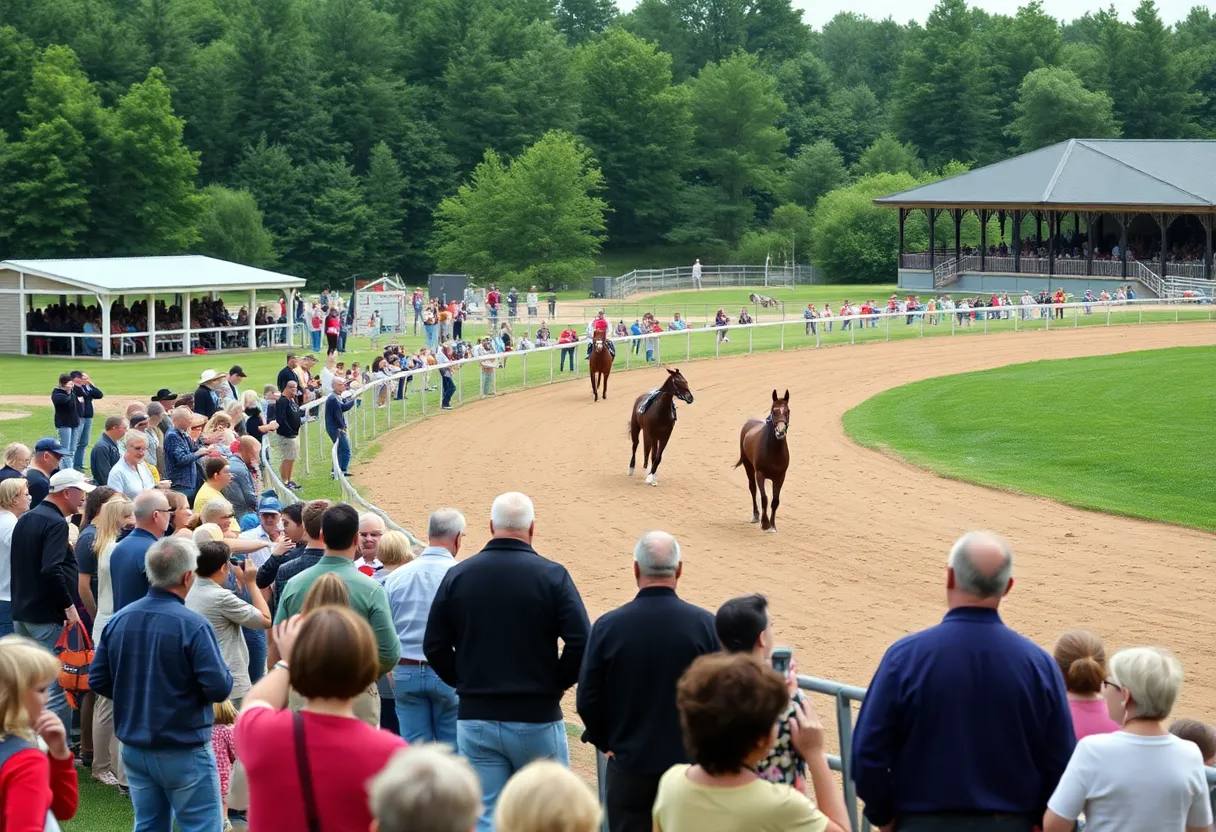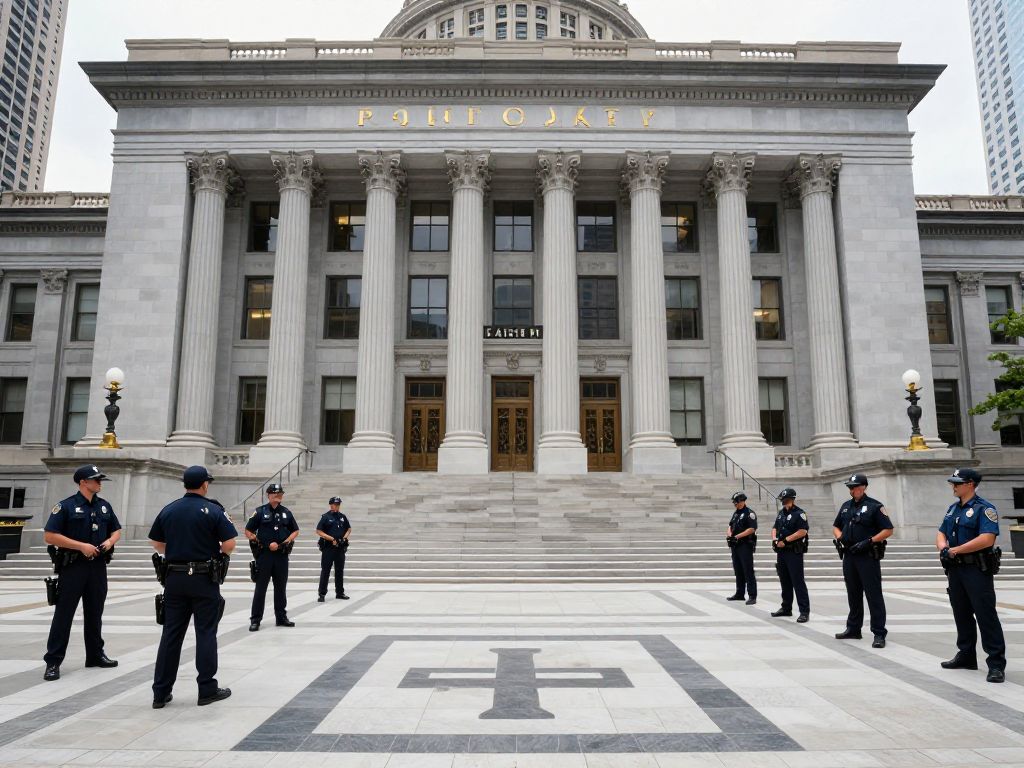News Summary
Horse racing in Massachusetts is facing significant scrutiny due to concerns over job quality and animal welfare. Recent reports reveal troubling death rates among racehorses and highlight issues surrounding employee wages. The ongoing state subsidies raise questions about the industry’s future, especially amid local opposition to new racetrack proposals. As local communities rally against these developments, the conversation around horse racing’s sustainability and ethics becomes increasingly urgent.
Plainville, Massachusetts: Horse Racing Faces Increased Scrutiny
Horse racing in Massachusetts is under significant scrutiny as concerns grow regarding job quality and animal welfare. With the closure of the last thoroughbred track in 2019, the remaining harness racing operations, particularly at Plainridge Park Casino, now attract only a modest crowd of approximately 70-75 patrons, primarily retirees. The industry, including several breeding farms, relies heavily on an annual public subsidy of about $20 million sourced from taxes on slot machines and casinos.
In 2023, the situation has reached a critical point, with Plainridge racetrack reporting the highest annual death toll for horses in recent memory. Six horses died or were euthanized due to race-related injuries. Necropsy reports reveal serious health issues leading to these tragic events, notably horses such as Stihl N, who suffered multiple fractures, and Sidd Finch, who had a fractured hind leg. Activists highlight that these incidents are part of a larger pattern; Patrick Battuello, founder of Horseracing Wrongs, has claimed that approximately 850 horse deaths have been confirmed in 2024, indicating a troubling trend that may be under-reported.
Amidst these concerns, a New York Times investigation has brought to light alarming practices within the horse racing industry, including questionable breeding and doping practices, alongside high rates of horse mortality at major venues. This growing scrutiny has fueled public apprehension about the sustainability and ethics of the industry in Massachusetts.
Wage and Employment Issues
State subsidy debates have intensified as the workforce supporting these operations wrestles with low wages. Data from the University of Massachusetts indicates that the median wage for Plainridge horse track employees was just $19.57 in 2023, with only 20% of workers earning a sufficient living wage for a family of four. While Plainridge Park claims that median wages have since increased to $22.54, the arguments against continued state subsidies remain compelling given the ongoing issues with wage levels.
Future of Horse Racing and Local Opposition
The closure of horse racing tracks has prompted discussions about repurposing these sites. Plans for housing developments are already underway at locations like the former Suffolk Downs track. Meanwhile, proposals for new racing facilities have met with significant local pushback. In Leominster, a plan for a racetrack known as “The Fairgrounds” at a former landfill site has raised concerns about public health, gambling access, traffic congestion, and environmental risks associated with landfill development.
Residents have reacted strongly to this proposal, collecting over 1,300 signatures on a petition to ban horse and dog racing in Leominster. Concerns voiced at city council meetings have included the potential for increased problem gambling and traffic disruptions along with adverse effects on community health. The city council has scheduled a public hearing on the racetrack proposal for May 12, amidst ongoing community debates.
Baystate Racing, the entity behind the proposed Leominster racetrack, has claimed that the project could generate an annual revenue of $1 million and create over 350 jobs. However, local residents remain skeptical about the economic benefits versus the potential drawbacks of such a facility. Leominster Mayor Dean J. Mazzarella has acknowledged the importance of accurate information dissemination regarding the racetrack proposal, emphasizing that it has not yet been formally submitted for review.
This follows previous challenges faced by Baystate Racing in nearby Gardner, where a racetrack proposal was ultimately rejected due to local resistance. As the public hearings approach, the future of horse racing and its associated economic and ethical considerations remain a point of contention in Massachusetts.
Deeper Dive: News & Info About This Topic
- Boston Globe: Horse Racing Fund and Casinos
- CBS News: Kentucky Derby Highlights
- WB Journal: Proposed Horse Racing Facility
- Wikipedia: Horse Racing
- MassLive: Proposed Racetrack in Leominster

Author: STAFF HERE BOSTON WRITER
The BOSTON STAFF WRITER represents the experienced team at HEREBoston.com, your go-to source for actionable local news and information in Boston, Suffolk County, and beyond. Specializing in "news you can use," we cover essential topics like product reviews for personal and business needs, local business directories, politics, real estate trends, neighborhood insights, and state news affecting the area—with deep expertise drawn from years of dedicated reporting and strong community input, including local press releases and business updates. We deliver top reporting on high-value events such as Boston Marathon, Head of the Charles Regatta, and Boston Harborfest. Our coverage extends to key organizations like the Greater Boston Chamber of Commerce and Associated Industries of Massachusetts, plus leading businesses in finance, biotech, and insurance that power the local economy such as Fidelity Investments, Biogen, and Liberty Mutual Insurance. As part of the broader HERE network, we provide comprehensive, credible insights into Massachusetts's dynamic landscape.





